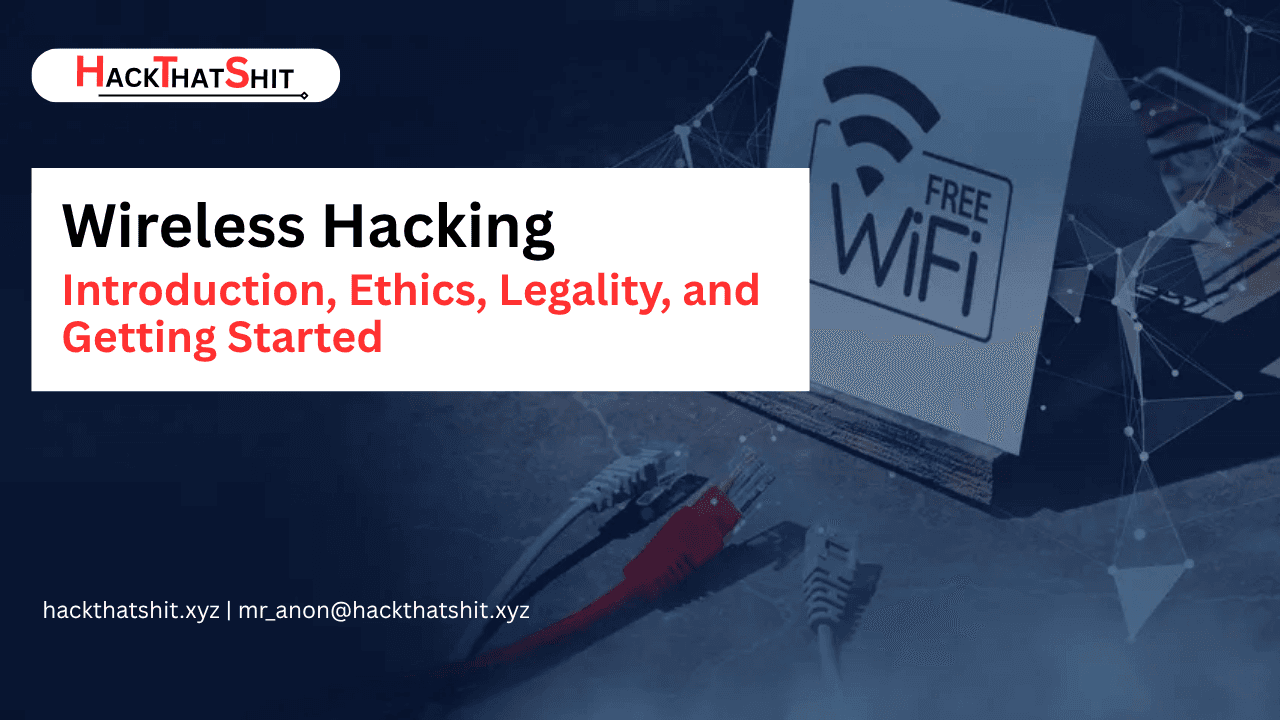Introduction
If you’re curious about diving into wireless hacking for beginners, you’re in the right place. In this first post of our Wireless Hacking Series, we’ll explore what wireless hacking actually means, how it’s used in cybersecurity, and how to get started in a safe, legal way — no experience required.
What is Wireless Hacking?
Wireless hacking refers to the practice of analyzing, exploiting, or testing the security of wireless networks—especially Wi-Fi. It involves studying the way networks communicate and identifying weak points in encryption protocols like WEP, WPA, WPA2, and WPA3.
While it’s often portrayed as malicious in movies, real-world wireless hacking is a critical skill for ethical hackers, penetration testers, and security researchers.
If you’re learning wireless hacking as a beginner, your focus should always be on legal, ethical, and educational use.
Why Learn Wireless Hacking?
Understanding how wireless attacks work is essential if you want to:
🔐 Protect your own network from threats
🛠️ Build skills as a penetration tester or red teamer
🏆 Participate in cybersecurity competitions like CTFs
📚 Deepen your understanding of Wi-Fi protocols and encryption
💼 Prepare for certifications like CEH, OSCP, or CompTIA Security+
Legal vs Illegal Wireless Hacking
Understanding how wireless attacks work is essential if you want to:
🔐 Protect your own network from threats
🛠️ Build skills as a penetration tester or red teamer
🏆 Participate in cybersecurity competitions like CTFs
📚 Deepen your understanding of Wi-Fi protocols and encryption
💼 Prepare for certifications like CEH, OSCP, or CompTIA Security+
What You’ll Need (Coming Up in Part 2)
In the next post, we’ll walk you through:
Installing Kali Linux
Choosing the right Wi-Fi adapter (not all work!)
Installing key tools like
aircrack-ng,reaver,bettercap, and more
You’ll have a fully functional lab to safely experiment without risking legal trouble.
Key Takeaways
Wireless hacking is a legitimate and vital skill in cybersecurity.
Always hack legally — use your own networks or authorized environments.
Learn with intention: to defend, educate, and grow — never to harm.
Ready to dive deeper? Part 2 will help you set up your wireless hacking lab from scratch.
